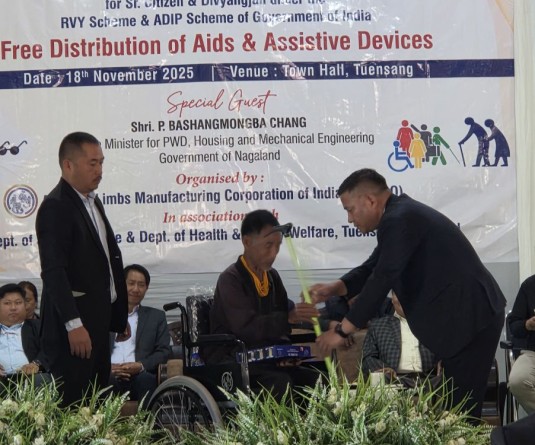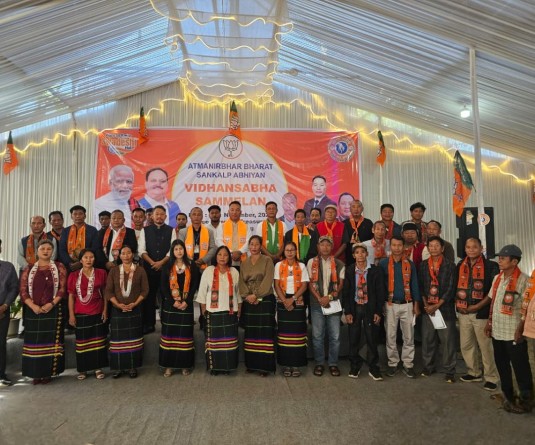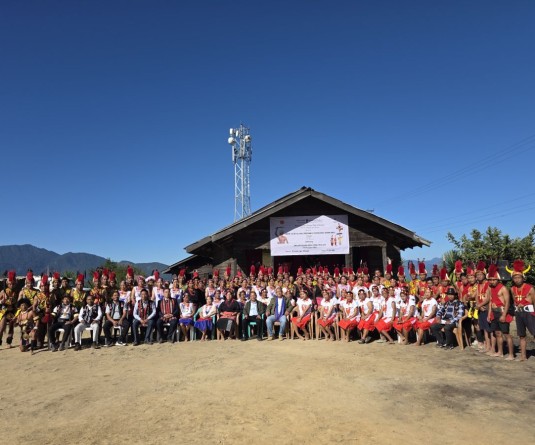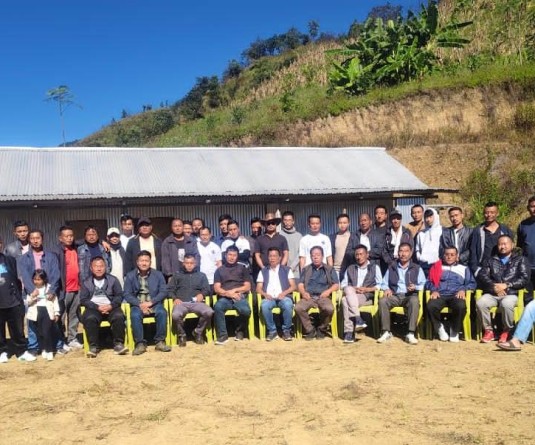
Rural women celebrate World Food Day in Chizami
Phek, October 16 (MExN): Under the theme ‘Strengthening local food and farming systems- a call for action,’ World Food Day 2017 was observed at Chizami village in Phek district on October 16. World Food Day is an annual observance of the UN- FAO and the theme for 2017 is ‘Change the future of migration - invest in food security and rural development.’
Organized by North East Network (NEN) Nagaland, the event had the participation of 130 women farmers from Phek district, village leaders, district administration, and officials from the department of Horticulture, Rural Development (RD), KVK- ICAR Porba and National Agriculture Bank for Rural Development (NABARD). 19 women farmers were honoured in recognition of their role and contribution in ensuring food and nutritional securities in their communities, according to a press release from NEN.
Seno Tsuhah from NEN highlighted the role of rural communities in ensuring food and nutritional securities. Stating that the rural-urban migration in Nagaland is increasing at rapid rate, she said if this trend is not checked it will become unhealthy for the society. To address the issue, she asserted that food and farming policies of the Government need to be relooked and re-strategized. The solution lies in strengthening local food and farming systems which requires the concerted effort of diverse stakeholders, particularly the government, Seno added.
Guest of Honor Kovi Meyase, Deputy Commissioner of Phek, in his inaugural speech stated that despite the many advancements made by human civilization, hunger and poverty remain to be addressed. Reiterating on the global theme, he pointed out that people across the world are migrating not by choice but by circumstance. Therefore, he stressed on the need to develop a roadmap for sustainable agriculture and food production. Local and indigenous food can contribute in addressing hunger and poverty and this can be leveraged through community extension services, the DC stated. Further, he stressed on importance of education for creating greater awareness in strengthening local food systems – production, value addition and marketing. Rural women have the potential to sustain local food production and building a resilient community, he said. In the session on ‘Promotion and support for local food and farming system’, testimonies on challenges and concerns of the farming community were shared by women farmers. Emerging issues were climate change and its impact on food security, shortage in agricultural labour, absence of support for indigenous and native seeds, promotion of cash crops by government, lack of remunerative price for local and organic products, the increasing use of chemical pesticides and fertilizers and its impact on soil fertility and shrinking agricultural lands, the release informed.
In response, Razouvolie Dozo, Project Director of RD shared on the focus to reduce migration by investing in rural livelihoods. He mentioned that in every programme of RD, 30% participation of women is mandatory and therefore women’s participation is necessary in all planning and decision making processes and activities. Meanwhile, Moalemba, District Horticulture Officer commended the concept of community seed banks, stating that such practice should be encouraged and replicated in other communities. He supported organic farming and provided information on various methods for pests and disease control.
In the session ‘Addressing barriers to rights and entitlements for women’, women farmers pointed out various challenges and barriers in relation to market access, post harvest management and processing technologies, reduction of work drudgery, access to women friendly tools and technology, trainings and information and access to capital and credit. In response, Imsunaro, DDM, NABARD highlighted the importance of awareness and sensitization of women on financial literacy and financial products such as KCC. Esther T. Longkumer, KVK-ICAR shared about the interventions of KVK and various programmes available for farmers.






